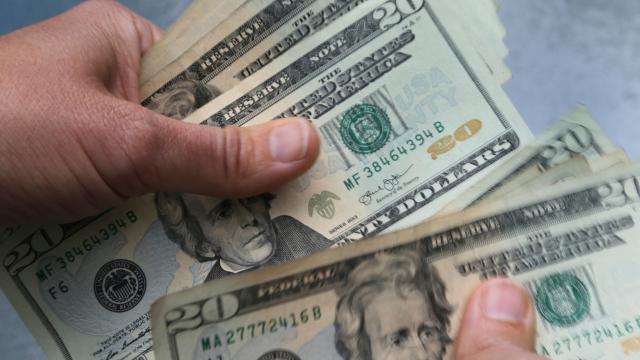The Drug Enforcement Administration maintained a database of people who purchased money-counting machines as part of a “legally questionable” effort to identify suspected drug dealers for further surveillance and enforcement efforts, the New York Times reported on Saturday.
The Times reported that a U.S. Department of Justice inspector general report indicated that said program operated from 2008 to 2013, when former National Security Agency contractor Edward Snowden leaked troves of internal intelligence documents.
Beginning in 2008, the DEA began issuing “blanket administrative subpoenas to vendors to learn who was buying money counters,” all of which had “no court oversight and were not pegged to any particular investigation.” They then assembled a database of “tens of thousands” of individuals who had purchased the devices, using the information as leads in investigations.
Money counting machines allow for the sorting of large amounts of currency. Since drug dealing is typically a cash business, and most people do not usually need to process big stacks of bills, it’s obvious why the DEA would be interested in this information.
The public version of the report, which noted that the program might not be legal, was heavily redacted to shield its existence. But the Times wrote that due to a mistake, the inspector general failed to redacted a section where it was mentioned that the DEA was not mentioning where their leads were coming from in case files:
But in a slip-up, the report contained one uncensored reference in a section about how D.E.A. policy called for withholding from official case files the fact that agents first learned the names of suspects from its database of its money-counter purchases.
That instruction, it said, “was intended to protect the program’s sources and methods; criminals would obtain money counters by other means if they knew that the D.E.A. collected this data.”
The report addresses three programs, #2 of which involved the DEA warrantlessly hoovering up records of people’s purchases of a particular item. Most mentions of that item are redacted, but on p. 64 of the report there’s a reference to “money counters”
— Sarah St.Vincent (@SarahStV_HRW) March 29, 2019
According to the Times, the report also covered agents’ complaints that the program was inefficient — though it was later adjusted to focus on bigger criminal operations. Human Rights Watch researcher Sarah St. Vincent, who first flagged the redaction mistake, noted a 2008 email in which a DEA official wrote, “Unless a federal court tells us we can’t do this, I think we can continue this project.” Vincent told the Times that was curious, as the secrecy of the program precluded any judicial review.
Additionally, the DEA does not appear to have performed more than a cursory legal review to see whether statutes authorizing bulk data collection via administrative subpoenas applied to the program.
The DOJ report called the DEA’s “uniquely expansive use” of this power “troubling,” and noted that FBI agents had questioned its legality when working on a joint task force in 2013. Per the Times:
The F.B.I. agents “explained that running all of these names, which had been collected without foundation, through a massive government database and producing comprehensive intelligence products on any ‘hits,’ which included detailed information on family members and pictures, ‘didn’t sit right,’” the report said.
According to the Times report, the DEA program was one of those shut down after Snowden leaked a massive archive of U.S. government secrets, including the existence of an NSA program to collect bulk metadata on Americans’ domestic phone calls; that program was later declared illegal by courts and replaced by Congress with a scaled-down program.
(That successor program itself may be on the way out.) The controversy surrounding bulk records collection programs appears to have spooked the DEA.
Another DEA program “that used administrative subpoenas to collect bulk logs of outgoing international phone calls from the United States to countries linked to drug trafficking” was shut down in 2013, the same year as FBI agents raised their suspicions about the money-counter sales records program and it was discontinued, the Times wrote.
According to the Washington Post, the inspector general report “came as close as it could to” declare the phone-data operation illegal.
The collection of the outbound international calls was “not connected to specific investigations or specific individuals under investigation” as would be necessary to justify it under law, Deputy Inspector General Bill Blier said in a statement.
“This use of the subpoena authority conflicts with court decisions stating that a federal agency’s issuance of administrative subpoenas must be for records relevant or material to a specific investigation.”
The report noted that the DEA also appeared to be passing through the collected phone data “in support of investigations by non-DEA federal agencies that had no apparent connection to specific drug investigations,” the Post wrote.
Another, a partnership between phone companies, the DEA, and other federal and local law enforcement agencies titled Project Hemisphere, was reported to be providing records of every call that goes through AT&T switchboards, dating back decades. It is still operating, according to the Times.
